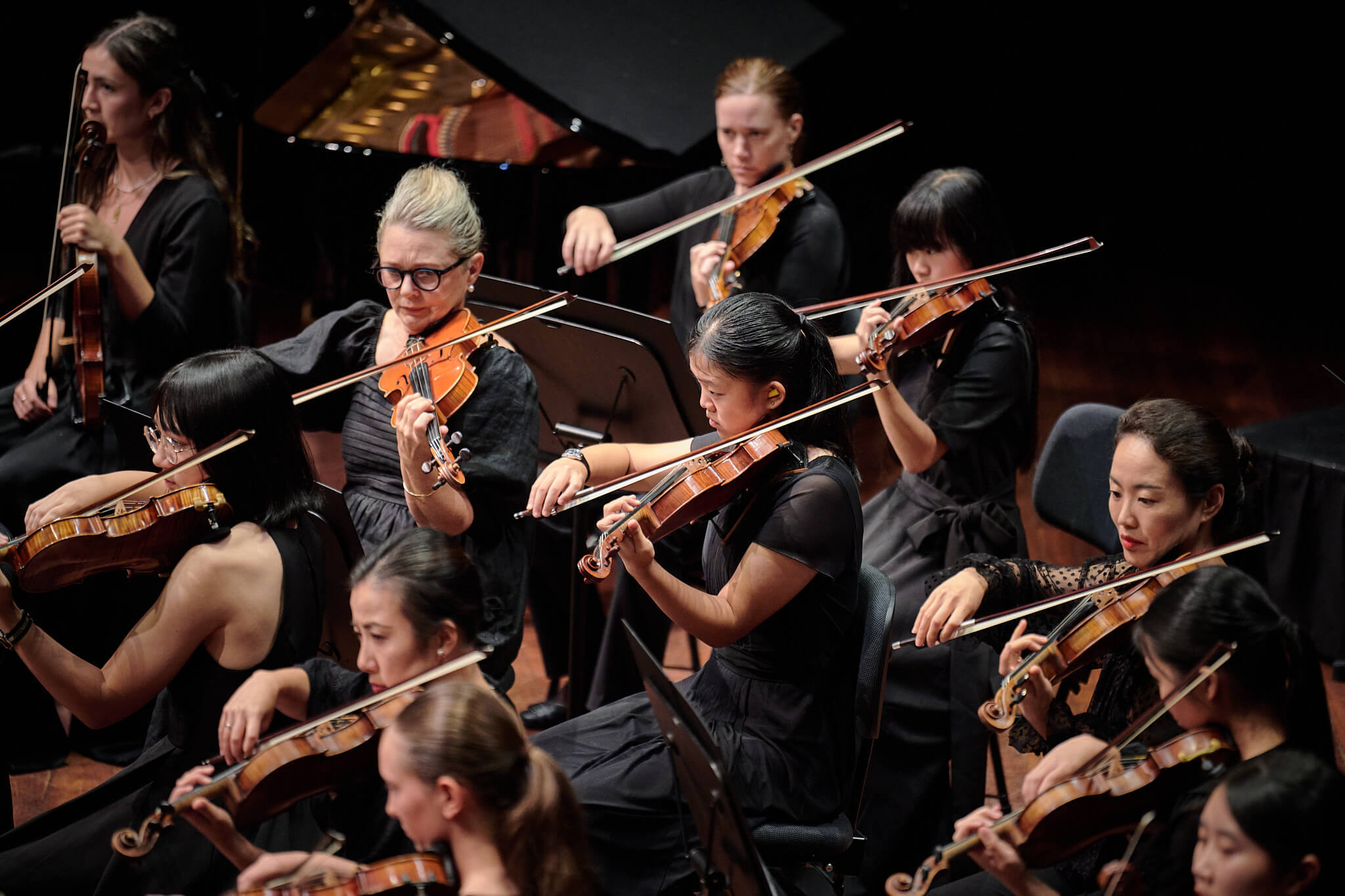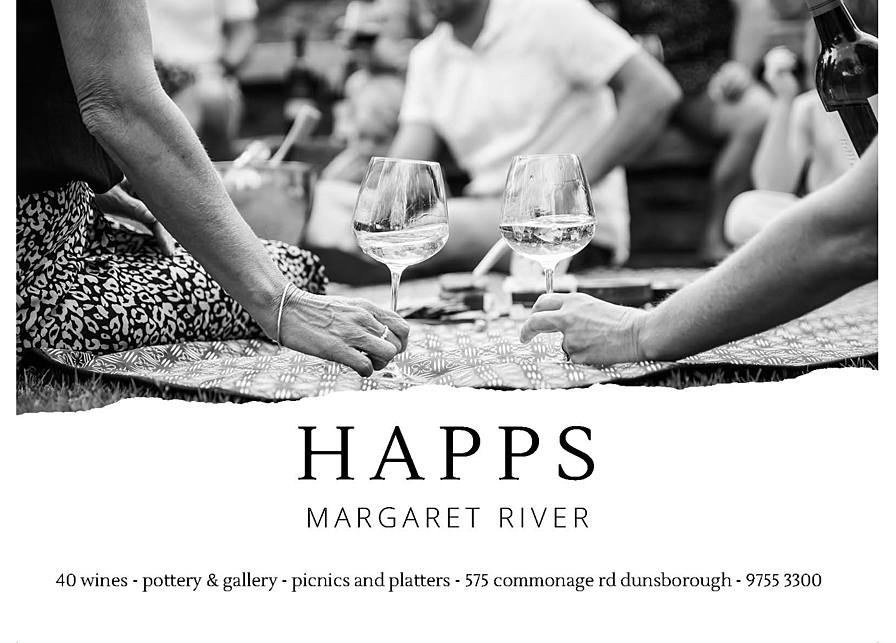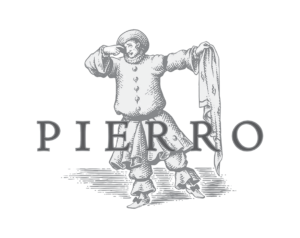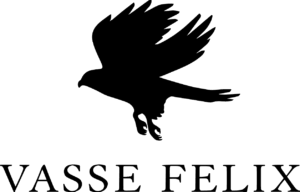Asher Fisch conducts Die Walküre
MASTERS SERIES
Friday 26 & Saturday 27 May 2023, 7.30pm
Perth Concert Hall
West Australian Symphony Orchestra respectfully acknowledges the Traditional Custodians and Elders of Country throughout Western Australia, and the Whadjuk Noongar people on whose lands we work and share music.
How to use your Digital Program
You may use this digital program in the Perth Concert Hall Auditorium. Please use it respectfully and allow your fellow concert-goers to enjoy their concert experience by following these guidelines:
• Please enable Concert Mode at the top of your browser and further dim your screen in your device's settings.
• Place your phone on silent and mute all videos.
• Taking photos or video? Ensure your camera shutter sound and flash are turned off, then, if the conductor's arm is raised, hold it. If it's relaxed, go for it!
• For more information, see Your Concert Experience.
Show more...
Asher Fisch conducts Die Walküre
Giuseppe VERDI I vespri siciliiani: Overture (9 mins)
Giuseppe VERDI Aida: Prelude (6 mins)
Giuseppe VERDI La Traviata: Prelude to Act I (4 mins)
Giuseppe VERDI La forza del destino: Overture (8 mins)
Interval (25 mins)
Richard WAGNER Die Walküre: Act I (70 mins)
Asher Fisch conductor
Stefanie Irányi Sieglinde
Paul O’Neill Siegmund
Warwick Fyfe Hunding
Musicians of the Australian National Academy of Music
Asher Fisch appears courtesy of Wesfarmers Arts.
Presented by West Australian Symphony Orchestra in collaboration with Australian National Academy of Music (ANAM).
ANAM’s Orchestral Partnership with WASO is generously supported by the Minderoo Foundation.
Wesfarmers Arts Pre-concert Talk
Find out more about the music in the concert with this week’s speaker, Tim White. The Pre-concert Talk will take place at 6.45pm in the Terrace Level Foyer.
Listen to WASO
This performance is recorded for broadcast on ABC Classic. For further details visit abc.net.au/classic
Did you know?
-
Verdi became the official paid organist for his local church aged just eight years old.
-
Three of Verdi's operas; La traviata, Rigoletto and Aida, are consistently among the most performed operas worldwide.
-
Verdi and Wagner were considered to be the most influential opera composers of their time, however the two never met in person.
-
It took Wagner 26 years to write his full Ring cycle.
-
Wagner was a big fan of the 'leitmotif'; musical motifs that are identified with specific ideas, objects or actions that recur throughout the music to underscore moments of the plot. Tonight's performance of Act I features 17 lietmotifs out of the 30 that appear in Die Walküre.
-
The three characters in Act I of Die Walküre may not be the most virtuous of individuals, but they are polite conversationalists. Throughout Act I, nobody talks over anyone else, and nobody interrupts, adhering to Wagnerian principles of operatic text-setting.
WASO & ANAM On Stage
VIOLIN
Laurence Jackson
Concertmaster
Riley Skevington
Assoc Concertmaster
Semra Lee
Assistant Concertmaster
• MACA
Rebecca Glorie
Acting Principal 1st Violin
• Rosalind & Lyndsay Potts
Zak Rowntree*
Principal 2nd Violin
Kylie Liang
Assoc Principal 2nd Violin
Kate Sullivan
Assistant Principal 2nd Violin
Olivia Bartlett^
Adrian Biemmi~
Sarah Blackman
Stephanie Dean
Beth Hebert
Emma Hunt
William Huxtable^
Alexandra Isted
Sunmi Jung
Christina Katsimbardis
Andrea Mendham
Akiko Miyazawa
Lucas O’Brien
Melanie Pearn
Ken Peeler
Louise Sandercock
Lydia Sawires~
Jolanta Schenk
Jane Serrangeli
• Philip & Frances Chadwick and Jim & Freda Irenic
Louise Turnbull~
Teresa Vinci^
Samantha Wickramasinghe
VIOLA
Daniel Schmitt
Alex Brogan
Kierstan Arkleysmith
Benjamin Caddy
Andrew Crothers~
Aaron Dungey
Alison Hall
Rachael Kirk
Elliot O’Brien
Ariel Postmus~
Helen Tuckey
CELLO
Eve Silver*
Melinda Forsythe^
Jeremy Garside^
Shigeru Komatsu
• Unnamed (2)
Noah Lawrence~
Oliver McAslan
Nicholas Metcalfe
• The Gregg family
Fotis Skordas
• Unnamed
Tim South
Jon Tooby^
DOUBLE BASS
Andrew Sinclair*
John Keene
• Janet Holmes à Court AC & Gilbert George
Robin Brawley
Elizabeth Browning^
Christine Reitzenstein
William Taber~
Adrian Whitehall~
FLUTE
Andrew Nicholson
• Unnamed
Mary-Anne Blades
• Unnamed
Laura Cliff~
PICCOLO
Michael Waye
• Pamela & Josh Pitt
OBOE
Liz Chee
Acting Principal
• Ruth E. Thorn and Michael & Helen Tuite
Ann Blackburn^
Oscar Gillespie~
COR ANGLAIS
Jonathan Ryan
CLARINET
Allan Meyer
• Leanne & Sam Walsh
Jes Broeren^
Georgia White~
BASS CLARINET
Alexander Millier
BASSOON
Jane Kircher-Lindner
• Meg O'Neill, Chase Hayes & Vicky Hayes
Adam Mikulicz
• Meg O'Neill, Chase Hayes & Vicky Hayes
Tasman Compton~
CONTRABASSOON
Chloe Turner
• Stelios Jewellers
HORN
★ Rod & Margaret Marston
David Evans
Eve McEwen
Robert Gladstones
Principal 3rd Horn
Julia Brooke
Stefan Grant~
Calen Linke~
Francesco Lo Surdo
Rosemarry Yang~
TRUMPET
Jenna Smith
Acting Principal
• John & Nita Walshe
Sophie Kukulies°
Peter Miller
Joel Walmsley~
TROMBONE
Joshua Davis
• Dr Glenda Campbell-Evans & Dr Ken Evans AM
Liam O’Malley
Assoc Principal Trombone
• Dale & Greg Higham
Jordan Mattinson~
Harrison Steele-Holmes~
BASS TROMBONE
James Littlewood^
TUBA
Jason Catchpowle^
TIMPANI
Alex Timcke
PERCUSSION
Brian Maloney
François Combémorel
Assoc Principal Percussion & Timpani
Steven Bryer~
Jesse Vivante~
HARP
Yi-Yun Loei^
William Nichols^
KEY
Principal
Associate Principal
Assistant Principal
Contract Musicians°
Guest Musicians^
ANAM Musicians~
★ Section supported through the Duet program by
• Chair supported through the Duet program by
* Instruments used by these musicians are on loan from Janet Holmes à Court AC.
Show more...
About the Artists

Asher Fisch
Principal Conductor & Artistic Advisor
A renowned conductor in both the operatic and symphonic worlds, Asher Fisch is especially celebrated for his interpretative command of core German and Italian repertoire of the Romantic and post-Romantic era. He conducts a wide variety of repertoire from Gluck to contemporary works by living composers. Since 2014, Asher Fisch has been the Principal Conductor and Artistic Advisor of the West Australian Symphony Orchestra (WASO). His former posts include Principal Guest Conductor of the Seattle Opera (2007-2013), Music Director of the New Israeli Opera (1998-2008), and Music Director of the Wiener Volksoper (1995-2000).
Born in Israel, Fisch began his conducting career as Daniel Barenboim’s assistant and kappellmeister at the Berlin Staatsoper. He has built his versatile repertoire at the major opera houses such as the Metropolitan Opera, Lyric Opera of Chicago, San Francisco Opera, Teatro alla Scala, Royal Opera House at Covent Garden, and Semperoper Dresden. Fisch has conducted at leading American symphony orchestras including those of Boston, Chicago, Cleveland, New York, and Philadelphia. In Europe he has appeared with the Berlin Philharmonic, Munich Philharmonic, London Symphony Orchestra, Leipzig Gewandhaus Orchestra, and the Orchestre National de France, among others.
Highlights of Asher Fisch’s 2022-23 season include Lohengrin and La forza del destino at the Teatro Comunale di Bologna, and Cavalleria Rusticana & Pagliacci at the Tokyo Metropolitan Theatre, as well as concerts with the Düsseldorfer Symphoniker, Queensland Symphony, Sydney Symphony, and Indianapolis Symphony Orchestra. Fisch’s 2021-22 season featured Adriana Lecouvreur at the Vienna State Opera, a gala concert at the Hungarian National Opera with Kristine Opolais, Otello and Der Rosenkavalier at the Teatro Comunale di Bologna, and concerts with the Colorado Symphony, Naples Philharmonic, and New Zealand Symphony Orchestra.
Other recent seasons included concert and opera engagements with the Boston Symphony Orchestra at Tanglewood, Cleveland Orchestra at the Blossom Festival, Sydney Symphony, Teatro Massimo Orchestra in Palermo, Carmen, Die Zauberflöte, and Parsifal at the Bayerische Staatsoper, Ariadne auf Naxos with the Bayerische Staatsoper at the Hong Kong Arts Festival, Tannhäuser at the Tokyo National Theater, and Pagliacci and Schitz at the Israeli Opera.
Asher Fisch’s recent recordings with WASO include Wagner’s Tristan und Isolde in 2018, which won Limelight Magazine’s Opera Recording of the Year in 2019, Bruckner’s Symphony No.8 and tenor Stuart Skelton’s first solo album Shining Knight, all of which were released on ABC Classics. Fisch’s recording of Ravel’s L’heure espagnole with the Munich Radio Orchestra won Limelight Magazine’s Opera Recording of the Year in 2017. In 2015, he recorded the complete Brahms symphonies with WASO, released on ABC Classics to great acclaim. His recording of Wagner’s Ring Cycle with the Seattle Opera was released on the Avie label in 2014. His first Ring Cycle recording, of the Helpmann award-winning State Opera of South Australia production, garnered praise and awards including the Prix Lauritz Melchior and Académie du disque lyrique Paris. Fisch is also an accomplished pianist and has recorded a solo disc of Wagner piano transcriptions for the Melba label.
Asher Fisch appears courtesy of Wesfarmers Arts.
Show more...
About the Artists

Stefanie Irányi
Sieglinde
The German mezzo soprano, Stefanie Irányi, is a renowned opera, concert and art song performer in leading opera and concert venues throughout Europe.
Last season Stefanie Irányi has made her critically acclaimed debuts in the role of Brangäne in a new production of Wagner‘s opera Tristan und Isolde. She also sang the role of Fricka in Das Rheingold in a concert performance under the baton of Kent Nagano, and Luciano Berio‘s Folk Songs in the chamber music series of the Bavarian Radio Symphony Orchestra.
Other highlights included a concert performance of the first act of Wagner‘s Die Walküre with the Prague Radio Symphony Orchestra, where she has made her debut in the role of Sieglinde, a Verdi Requiem performance in Basel, Mahler‘s Second Symphony with the Israel Symphony Orchestra and Mahler‘s Third Symphony with the Madrid OSRTVE.
Show more...
About the Artists

Paul O’Neill
Siegmund
Australian tenor Paul O’Neill has forged a compelling international career performing throughout Europe and Australasia. His 2021/2022 engagements included Alfredo (La traviata) for Opera Australia, Turiddu (Cavalleria rusticana) and Canio (Pagliacci) for West Australian Opera. In 2022/23, he sings Don José, Cavaradossi, Alfredo, Rodolfo and Otello for West Australian Opera, Pinkerton (Madama Butterfly) for Opera Australia and is tenor soloist in Britten’s War Requiem for West Australian Symphony.
Most recently, Paul sang Don José, Turiddu (Cavalleria rusticana) and Canio (Pagliacci) and Cavaradossi for West Australian Opera, Rodolfo, Narraboth (Salome) and Alfredo for Opera Australia and the title role in Faust for Theater Münster. He has sung Don José at the Glyndebourne Festival; Laca (Jenůfa) for Opéra de Lille; Rodolfo for Halle Opera; Elvino (La sonnambula) and Laca with Graz Opera.
Other roles include: The Duke (Rigoletto) with Opera Holland Park, Opera Australia, West Australian Opera, Staatstheater Karlsruhe and Staatstheater Mainz; and The Italian Tenor (Der Rosenkavalier) for Berlin Staatsoper.
© Patrick Togher Artists’ Management 2023
Show more...
About the Artists

Warwick Fyfe
Hunding
Warwick Fyfe is a Helpmann Awardwinning singer and is considered one of Australia’s finest baritones.
Recent appearances include Beckmesser (Die Meistersinger von Nürnberg), Alberich (Der Ring des Nibelungen), Sancho Panza (Don Quichotte), Amonasro (Aida), Geronio (Il turco in Italia), Barone di Trombonok (Il viaggio a Reims) and Klingsor (Parsifal) for Opera Australia, Alberich (Das Rheingold) for the Japan Philharmonic and Tianjin Symphony Orchestras, Peter (Hansel and Gretel) in Singapore, Athanaël (Thaïs) and Amonasro for Finnish National Opera, Bartolo (Il barbiere di Siviglia) for Victorian Opera, Wotan (Die Walküre) in Singapore and Melbourne, Pizarro (Fidelio) in Melbourne and Perth and Bottom (A Midsummer Night’s Dream) in Adelaide.
In 2022, he sang Scarpia (Tosca) for West Australian Opera, The Herald (Lohengrin) for Opera Australia and Wotan (Die Walküre) for Melbourne Opera. In 2023, he returns to OA as Amonasro and Alberich, sings Wotan/Wanderer in Melbourne Opera’s Der Ring des Nibelungen and is a soloist with the Melbourne and West Australian Symphony Orchestras.
© Patrick Togher Artists’ Management 2023
Show more...
About the Artists

Australian National Academy of Music (ANAM)
The Australian National Academy of Music (ANAM) is dedicated to training the most exceptional young classical musicians from Australia and New Zealand. It is the only professional performance training institute of its kind in Australia, and one of few in the world.
ANAM musicians fly between the stage and the studio; performing in over 180 events each year and receiving more than 60 hours of one-on-one training and hundreds of hours of coaching from an esteemed Faculty and impressive list of national and international guest artists.
From taking meditation classes, singing Bach chorales, laying down a concerto, or building a buzz around their forthcoming gig, to learning how to work a scale, work a fugue, work a room, or work towards securing a vibrant future for classical music. They find themselves sitting crosslegged on the floor with a class of local third graders one day, to performing with the world’s finest artists on stages all across the country the next.
ANAM alumni work in orchestras and chamber ensembles around the world (23 members of WASO are ANAM Alumni), perform as soloists, contribute to educating the next generation of musicians, and regularly win major national and international awards.
Image credit: Cameron Jamieson
Show more...
About the Music

Giuseppe Verdi
(1813-1901)
Verdi’s status in the world of Italian opera is unrivalled. Born in the same year as Richard Wagner, he forged a parallel but separate musical path that was as influential as it was popular. As the heir to a tradition dominated by Rossini, Bellini and Donizetti, he honed his dramatic instincts, furnishing his operas with not only memorable melodies, but also bold characterisations and complex layers of emotional intensity, thus opening the door for the verismo of Puccini and Mascagni. In a career spanning 50 years, Verdi wrote 28 operas, half of which are still a core part of the repertoire. This concert celebrates his legacy with overtures and preludes from four of his most famous operas.
I vespri siciliani: Overture
Our concert begins with an overture that is regarded by many as Verdi’s best. I vespri siciliani was written in response to a commission from the Paris Opéra for a grand opera in five acts. Based on a libretto co-written by Eugène Scribe (and partly set to music by Donizetti some 15 years earlier), the plot concerns the historical tale of Sicily’s bloody revolt against French rule during Easter 1282, an event that subsequently came to be known as the Sicilian Vespers. The premiere of the original French version of the opera took place on 13 June 1855 and was hugely successful, drawing admiration from even Hector Berlioz, who commented on the work’s ‘grandeur and sovereign majesty’. The opera’s initial popularity notwithstanding, it did not enter the Parisian repertoire permanently.
The overture falls into two movements: an opening Largo punctuated by ominous sounding drum rolls, followed by an Allegro agitato section during which we hear several of the opera’s themes, including the beautiful melody on cellos from the Act 3 duet where Monforte, the French Governor, tells the young Sicilian hero, Arrigo, that they are in fact father and son.
Most recent WASO performance:
30 May 1982. David Measham, conductor.
Instrumentation:
piccolo, flute, two each of oboes, clarinets and bassoons; four horns, two trumpets, two cornets, three trombones and tuba; three percussion, timpani and strings.
Aida: Prelude
In early 1870, impresario Camille du Locle passed Verdi a scenario for an opera devised by the French archaeologist and Egyptologist, Auguste Mariette. Du Locle was acting on behalf of the Khedive of Egypt, whose previous request for an inaugural piece to celebrate the opening of Cairo’s new opera house Verdi had turned down (another of Verdi’s operas, Rigoletto, was chosen to inaugurate the Khedivial Opera House). If Mariette’s outline piqued Verdi’s interest, the Khedive’s subsequent – and very generous – financial offer sealed the deal. Verdi employed the services of librettist Antonio Ghislanzoni, with whom he had collaborated when revising La forza del destino for La Scala in 1869. Aida opened in Cairo on 24 December 1871, conducted by the celebrated double bass virtuoso Giovanni Bottesini (Verdi, unwilling to make the journey to Egypt, stayed at home to prepare for Aida’s Italian premiere in Milan). Both occasions were triumphs, with Verdi commenting in a letter to a friend that the opera was ‘certainly not one of my worst’ – a spectacular understatement, given that within ten years of its premiere Aida would be produced in some 50 countries.
For many, Aida is the epitome of grand opera, with its spectacle, rousing choruses and public moments. But it is testament to Verdi’s genius that, amid the pomp, there are moments of powerful human drama and intimacy. At the opera’s heart is an intensely poignant tale: Aida, an enslaved Ethiopian princess, is caught between her love for her country and her love for Radamès, who is chosen to lead the Egyptians into battle against the Ethiopians. Verdi composed a fullscale overture for the La Scala premiere but discarded it in favour of this shorter prelude in which Aida’s fragile, chromatic theme is contrasted with the music for the Priests.
Most recent WASO performance:
30 June 1981. Albert Rosen, conductor.
Instrumentation:
three flutes (third also piccolo), two each of oboes, clarinets and bassoons; four horns, two trumpets, three trombones and tuba; timpani and strings.
La traviata: Prelude to Act 1
La traviata survived a disastrous premiere to become not only a worldwide audience favourite, but Verdi’s pick, too: when asked which of his operas he liked best, he replied, ‘Speaking as a professional, Rigoletto; as an amateur, La traviata.’
Even by Verdi’s fecund standards (between 1842 and 1853 – his so-called ‘galley years’ – he wrote 16 operas), Traviata was composed in record time. When in 1852 he was contracted to produce a new opera for the following year’s Venice Carnival season, he was already working on Il trovatore, whose premiere was given in Rome just weeks before that of La traviata at Teatro La Fenice on 6 March 1853.
The libretto of La traviata (by Francesco Maria Piave) is based on Alexander Dumas’ novel La dame aux camélias, the stage adaptation of which premiered in Paris in 1852. The novel is a thinly veiled chronicle of Dumas’ relationship with courtesan Marie Duplessis, who died of consumption in 1847, aged 23. As Verdi commented, it was a ‘subject of our times’. The Venetian authorities disagreed, however: baulking at the prospect of an onstage depiction of Paris’s demi-monde, they insisted that the opera’s contemporary setting be pushed back 150 years in order to place the subject matter at a historically safe distance. Verdi was ahead of his time: it was some years before productions of La traviata restored the original, intended mid-19th-century setting. Verdi understood the drama that could be wrought from telling the story of the era’s courtesans, who walked a tightrope between a hedonistic life in high society and being shunned by the very people who sought their favours. In the opera Violetta faces an agonising choice, and the demanding soprano part wrings every last drop of emotion from the role.
For La traviata Verdi again eschews a full-scale operatic overture. In a reverse chronological structure that makes for great theatre, the short Prelude to Act 1 begins with music that prefigures the opera’s tragic ending, with shimmering divided violins depicting Violetta’s frailty; we then hear the theme from her Act 2 aria ‘Amami, Alfredo’; as this melody is passed to the cellos, the violins play a coquettish obbligato that evokes the effervescent Violetta as she appears in the opening party scene.
Most recent WASO performance:
10 December 1999. Richard Mills, conductor.
Instrumentation:
flutes, oboe, clarinet and two bassoons; four horns and strings.
La forza del destino: Overture
After Un ballo in maschera (premiered in 1859), Verdi’s work rate slowed. He married his partner of ten years, the soprano Giuseppina Strepponi, served as a member of the newly formed Italian parliament, and generally busied himself with non-musical pursuits at his country home in Sant’Agata, near his birthplace in Northern Italy. In late 1860 he received an offer for a new opera for the Imperial Theatre in St Petersburg. Verdi again collaborated with Piave for the libretto, based on a Spanish melodrama by Angel de Saavedra, about a blood feud in which an ill-fated elopement results in a father, son and daughter each
meeting an untimely and violent end. The reception to the opera’s 1862 premiere was tepid, and Verdi subsequently revised it (with Ghislanzoni, Piave having been incapacitated by a stroke), and the new version premiered at La Scala in 1869. The overture begins with a unison call to attention from the brass, before the introduction of the febrile ‘fate’ theme – a rising four-note motif that recurs throughout. We then hear themes associated with Alvaro’s plea for mercy to Carlo in Act 4, Leonora’s prayer to the Virgin, and her Act 2 duet with Padre Guardiano. The music rises to a dramatic climax, foreshadowing the tragic conclusion of the opera.
Lorraine Neilson © 2023
Most recent WASO performance:
19-20 June 2015. Otto Tausk, conductor.Instrumentation:
piccolo, flute, two each of oboes, clarinets and bassoons; four horns, two trumpets, three trombones and tuba; percussion, timpani, two harps and strings.
Glossary
Allegro agitato – both a tempo indication (faster than a usual Allegro) and a mood indication (agitated).
Chromatic – a passage of notes moving up or down in pitch by very small steps.
La Scala – theatre in Milan, one of the principal opera houses of the world and the leading Italian house.
Largo – very slow and broad.
Libretto – literally, a ‘little book’: the words of an opera or oratorio.
Motif – a short, distinctive melodic or rhythmic figure, often part of or derived from a theme.
Obbligato – literally, ‘obligatory’: an instrument or part that must not be omitted. By extension, a prominent accompanying melody.
Unison – where all the voices or instruments are playing the same tune, rather than sounding different notes simultaneously to make chords.
Show more...
About the Music

Richard Wagner
(1813-1883)
Die Walküre: Act I
The Ring cycle grew out of Wagner’s idea for an opera called Siegfrieds Tod (Siegfried’s Death), the text of which he sketched in 1848. Much of this material would end up in Götterdämmerung (The Twilight of the Gods), the last opera in the cycle. Wagner found that he needed to trace the Teutonic legend further and further back, ultimately producing a sequence of four operas which, as he once put it, contain ‘the world’s end and its beginning’. These are linked by a web of musical tags or leitmotifs, each of which represents a character, idea or emotion.
An avid polemicist, Wagner devoted his 1852 monograph Opera and Drama to the need to reform the genre along the lines that Gluck had in the 18th century, and execrated those works (such as Rossini’s) which elevated the singer, through the medium of the aria, to the primary role. At this time Wagner felt that the music should be seamless, and able to ‘completely stir, and also to completely satisfy, feeling’; vocal lines should in a sense be a kind of heightened speech, so as to render the libretto intelligible. Together with the stage picture, these elements in Wagner’s view fuse to form the ‘total work of art’ where no element draws attention to itself.
In Das Rheingold, the first opera in the tetralogy, we can still hear the outlines of set-pieces – arias, interludes and so on. By Act I of Die Walküre, however, the ideals of Opera and Drama have been largely met. The cross-referencing effect of the leitmotifs gives the music an intense unity, and the vocal writing responds sensitively to the content of the text – here in a scenario which is almost claustrophobically intimate. Interestingly, though, when Wagner temporarily abandoned the third Ring opera, Siegfried, it was to write Tristan and Isolde, where the music is unarguably the most important element.
Die Walküre was completed in 1856 and first presented at the command of King Ludwig of Bavaria in 1870. In 1876 it was seen as part of the first Ring cycle at Wagner’s theatre in Bayreuth.
The story so far:
In Das Rheingold, the Nibelung dwarf Alberich steals the gold guarded on the river’s bed by the Rhinemaidens. With it he fashions a magic ring which allows him to enslave his fellow Nibelungs. Meanwhile two giants, Fafner and Fasolt, have completed the building of Valhalla, the castle of Wotan and his fellow gods. The agreed payment for their work is the goddess Freia, but Wotan reneges; with the help of the fire-god Loge he tricks Alberich into giving up his treasure (including the ring) in order to buy off the giants. Alberich curses the ring as it is taken from him, and sure enough the giants fight over it. Fafner kills his brother and retreats with the treasure to the wilderness (where he later assumes the form of a dragon). The Gods enter Valhalla in triumph, despite the pleas of the Rhinemaidens for the return of their gold, and the cynical asides of Loge, who knows that it will all end badly.
Between the end of Das Rheingold and Act I of Die Walküre, Wotan has had a couple of affairs. With the earth goddess, Erda, he has fathered the Valkyries, warrior maidens who gather the souls of fallen heroes and take them to Valhalla. The Ring, after all, is still at large, so Wotan’s power is not absolute and he needs a bodyguard. Disguised as a man, Wälse, he has also fathered twins with a mortal mother, hoping to produce a hero who will save the world from the net of curses and lies which Wotan has allowed to develop. The twins, Siegmund and Sieglinde, were separated as children, but meet again in Act I of Die Walküre.
Now read on:
The opera opens with a fierce orchestral storm, at the height of which Siegmund bursts into a hut built around a huge ash tree in the forest. He is fleeing from enemies and is exhausted, so asks the young woman in the hut for a drink. She is frightened, but gives him a drink, as Wagner’s music spins a passage of extraordinary warmth out of a high cello line. Neither knows the other’s identity, but a powerful attraction develops. Sieglinde, however, is married – against her will – to Hunding, who arrives home to the sound of a grim motif for horns and Wagner tubas. According to the rules of hospitality he must make his guest welcome, despite his evident distrust of this man who calls himself Wehwalt, or ‘son of sorrow’.
Siegmund describes how he, his mother and sister lived in the forest until a day when he came home to find the women gone and their hut destroyed. In the course of the discussion, however, it becomes clear that the enemies from whom Siegmund was fleeing are Hunding’s clan. As Siegmund killed some of them, Hunding gives him the protection of his house for the night, but vows vengeance on the unarmed Siegmund the following morning.
Left alone, Siegmund remembers that his father once promised that he would provide a sword in the time of highest need. Sieglinde, who has drugged her husband, returns and tells Siegmund that on her wedding night a disguised stranger (whom the orchestra identifies for us as Wotan) strode into the hut and plunged into the trunk of the ash tree a sword which no-one has been able to pull out. The C major trumpet arpeggio which represents the sword glows in the orchestra.
Suddenly the hut’s door blows open to reveal a spring landscape bathed in moonlight. Siegmund sings what is almost a conventional aria about the passing of winter’s storms and reveals that he is Siegmund the Wälsung; Sieglinde responds by revealing her identity as his twin sister. He pulls the sword from the tree and calls it ‘Nothung’ (from Not or ‘need’) and the twins rush into the forest to consummate their love for each other and continue the Wälsung blood-line as the curtain falls.
And then:
Siegmund must, of course, die for breaking the incest taboo, and Brünnhilde, the Valkyrie of the title, will be punished for trying to help him in defiance of her father. But Sieglinde will escape and give birth to Siegfried, and there will be two more operas before the Rhinemaidens get their gold back.
Gordon Kerry © 2004
First performance:
26 June 1870, National Theatre Munich.
First performance as part of the Ring cycle:
14 August 1876, Bayreuth Festspielhaus
Librettist: Richard Wagner
Language: German
Instrumentation:
piccolo, three flutes (third doubles piccolo), three oboes, cor anglais (doubles oboe), three clarinets (B♭, A), bass clarinet (B♭, A), three bassoons (third doubles contrabassoon); eight horns (two double Wagner Tubas in F, 2 in B♭), three trumpets, bass trumpet, two tenor trombones, bass trombone, contrabass trombone, tuba; two timpani, snare drum, triangle, cymbals, tamtam, glockenspiel; two harps and strings.
Glossary
Leitmotif – a musical motif associated with a particular character, concept or situation
Arpeggio – a musical gesture in which the notes of a chord are ‘spread’, or played one after the other instead of simultaneously. It nearly always starts at the bottom of the chord.
Show more...
New to Wagner's Ring Cycle?
Act I of Die Walküre is a tiny snippet from Wagner's epic Ring cycle. Der Ring des Nibelungen (The Ring of the Nibelung) is made up of four operas, with Die Walküre the second opera of the four, and collectively the cycle runs for a whopping 15 hours! Check out the below video to learn more about how Act I of Die Walküre fits into Wagner's odyssey. Several years ago our friends at the Sydney Symphony managed to summarise the entire Ring cycle in just two and a half minutes. We recommend slowing down your playback speed!
Wagner's 15-hour Ring Cycle in two and a half minutes
Die Walküre: Act I
Text & Translation
German
English
ERSTER AUFZUG
In der Mitte steht der Stamm einer mächtigen Esche, dessen stark erhabene Wurzeln sich weithin in den Erdboden verlieren; von seinem Wipfel ist der Baum durch ein gezimmertes Dach geschieden, welches so durchschnitten ist, daß der Stamm und die nach allen Seiten hin sich ausstreckenden Äste durch genau entsprechende Öffnungen hindurchgehen; von dem belaubten Wipfel wird angenommen, daß er sich über dieses Dach ausbreite. Um den Eschenstamm, als Mittelpunkt, ist nun ein Saal gezimmert; die Wände sind aus roh behauenem Holzwerk, hier und da mit geflochtenen und gewebten Decken behangen. Rechts im Vordergrunde steht der Herd, dessen Rauchfang seitwärts zum Dache hinausführt: hinter dem Herde befindet sich ein innerer Raum, gleich einem Vorratsspeicher, zu dem man auf einigen hölzernen Stufen hinaufsteigt: davor hängt, halb zurückgeschlagen, eine geflochtene Decke. Im Hintergrunde eine Eingangstür mit schlichtem Holzriegel. Links die Tür zu einem inneren Gemache, zu dem gleichfalls Stufen hinaufführen; weiter vornen auf derselben Seite ein Tisch mit einer breiten, an der Wand angezimmerten Bank dahinter und hölzernen Schemeln davor.
(Ein kurzes Orchestervorspiel von heftiger, stürmischer Bewegung leitet ein. Als der Vorhang aufgeht, öffnet Siegmund von außen hastig die Eingangstür und tritt ein: es ist gegen Abend, starkes Gewitter, im Begriff, sich zu legen. Siegmund hält einen Augenblick den Riegel in der Hand und überblickt den Wohnraum: er scheint von übermäßiger Anstrengung erschöpft; sein Gewand und Aussehen zeigen, daß er sich auf der Flucht befinde. Da er niemand gewahrt, schließt er die Tür hinter sich, schreitet auf den Herd zu und wirft sich dort ermattet auf eine Decke von Bärenfell.)
Siegmund
Wes Herd dies auch sei, hier muß ich rasten.
(Er sinkt zurück und bleibt einige Zeit regungslos ausgestreckt. Sieglinde tritt aus der Tür des inneren Gemaches; sie glaubte ihren Mann heimgekehrt: ihre ernste Miene zeigt sich dann verwundert, als sie einen Fremden am Herde ausgestreckt sieht).
Sieglinde
(noch im Hintergrunde)
Ein fremder Mann? Ihn muß ich fragen.
(Sie tritt ruhig einige Schritte näher)
Wer kam ins Haus und liegt dort am Herd?
(Da Siegmund sich nicht regt, tritt sie noch etwas näher und betrachtet ihn)
Müde liegt er, von Weges Müh'n.
Schwanden die Sinne ihm? Wäre er siech?
(Sie neigt sich zu ihm herab und lauscht)
Noch schwillt ihm der Atem; das Auge nur schloß er. -
Mutig dünkt mich der Mann, sank er müd' auch hin.
Siegmund
(fährt jäh mit dem Haupt in die Höhe)
Ein Quell! Ein Quell!
Sieglinde
Erquickung schaff' ich.
(Sie nimmt schnell ein Trinkhorn und geht damit aus dem Hause. Sie kommt zurück und reicht das gefüllte Trinkhorn Siegmund)
Labung biet' ich dem lechzenden Gaumen:
Wasser, wie du gewollt.
(Siegmund trinkt und reicht ihr das Horn zurück. Als er ihr mit dem Haupte Dank zuwinkt, haftet sein Blick mit steigender Teilnahme an ihren Mienen.)
Siegmund
Kühlende Labung gab mir der Quell,
des Müden Last machte er leicht:
erfrischt ist der Mut,
das Aug' erfreut des Sehens selige Lust.
Wer ist's, der so mir es labt?
Sieglinde
Dies Haus und dies Weib sind Hundings Eigen;
gastlich gönn' er dir Rast: harre, bis heim er kehrt!
Siegmund
Waffenlos bin ich:
dem wunden Gast wird dein Gatte nicht wehren.
Sieglinde
(mit besorgter Hast)
Die Wunden weise mir schnell!
Siegmund
(schüttelt sich und springt lebhaft vom Lager zum Sitz auf)
Gering sind sie, der Rede nicht wert;
noch fügen des Leibes Glieder sich fest.
Hätten halb so stark wie mein Arm
Schild und Speer mir gehalten,
nimmer floh ich dem Feind,
doch zerschellten mir Speer und Schild.
Der Feinde Meute hetzte mich müd',
Gewitterbrunst brach meinen Leib;
doch schneller, als ich der Meute,
schwand die Müdigkeit mir:
sank auf die Lider mir Nacht;
die Sonne lacht mir nun neu.
Sieglinde
(geht nach dem Speicher, füllt ein Horn mit Met und reicht es Siegmund mit freundlicher Bewegtheit)
Des seimigen Metes süßen Trank
mög'st du mir nicht verschmähn.
Siegmund
Schmecktest du mir ihn zu?
(Sieglinde nippt am Horne und reicht es ihm wieder. Siegmund tut einen langen Zug, indem er den Blick mit wachsender Wärme auf sie heftet. Er setzt so das Horn ab und läßt es langsam sinken, während der Ausdruck seiner Miene in starke Ergriffenheit übergeht. Er seufzt tief auf und senkt den Blick düster zu Boden.)
Siegmund
(mit bebender Stimme)
Einen Unseligen labtest du:
Unheil wende der Wunsch von dir!
(Er bricht schnell auf, um fortzugehen)
Gerastet hab' ich und süß geruht.
Weiter wend' ich den Schritt.
(er geht nach hinten)
Sieglinde
(lebhaft sich umwendend)
Wer verfolgt dich, daß du schon fliehst?
Siegmund
(von ihrem Rufe gefesselt, wendet sich wieder; langsam und düster)
Mißwende folgt mir, wohin ich fliehe;
Mißwende naht mir, wo ich mich neige. -
Dir, Frau, doch bleibe sie fern!
Fort wend' ich Fuß und Blick.
(Er schreitet schnell bis zur Tür und hebt den Riegel)
Sieglinde
(in heftigem Selbstvergessen ihm nachrufend)
So bleibe hier!
Nicht bringst du Unheil dahin,
wo Unheil im Hause wohnt!
(Siegmund bleibt tief erschüttert stehen; er forscht in Sieglindes Mienen; diese schlägt verschämt und traurig die Augen nieder. Langes Schweigen)
Siegmund
(kehrt zurück)
Wehwalt hieß ich mich selbst:
Hunding will ich erwarten.
(Er lehnt sich an den Herd; sein Blick haftet mit ruhiger und entschlossener Teilnahme an Sieglinde; diese hebt langsam das Auge wieder zu ihm auf. Beide blicken sich in langem Schweigen mit dem Ausdruck tiefster Ergriffenheit in die Augen).
(Sieglinde fährt plötzlich auf, lauscht und hört Hunding, der sein Roß außen zum Stall führt. Sie geht hastig zur Tür und öffnet; Hunding, gewaffnet mit Schild und Speer, tritt ein und hält unter der Tür, als er Siegmund gewahrt. Hunding wendet sich mit einem ernst fragenden Blick an Sieglinde)
Sieglinde
(dem Blicke Hundings entgegnend)
Müd am Herd fand ich den Mann:
Not führt' ihn ins Haus.
Hunding
Du labtest ihn?
Sieglinde
Den Gaumen letzt' ich ihm, gastlich sorgt' ich sein!
Siegmund
(der ruhig und fest Hunding beobachtet)
Dach und Trank dank' ich ihr:
willst du dein Weib drum schelten?
Hunding
Heilig ist mein Herd: -
heilig sei dir mein Haus!
(er legt seine Waffen ab und übergibt sie Sieglinde. Zu Sieglinde)
Rüst' uns Männern das Mahl!
(Sieglinde hängt die Waffen an Ästen des Eschenstammes auf, dann holt sie Speise und Trank aus dem Speicher und rüstet auf dem Tische das Nachtmahl. Unwillkürlich heftet sie wieder den Blick auf Siegmund)
(Hunding mißt scharf und verwundert Siegmunds Züge, die er mit denen seiner Frau vergleicht; für sich)
Wie gleicht er dem Weibe!
Der gleißende Wurm glänzt auch ihm aus dem Auge.
(er birgt sein Befremden und wendet sich wie unbefangen zu Siegmund)
Weit her, traun, kamst du des Wegs;
ein Roß nicht ritt, der Rast hier fand:
welch schlimme Pfade schufen dir Pein?
Siegmund
Durch Wald und Wiese, Heide und Hain,
jagte mich Sturm und starke Not:
nicht kenn' ich den Weg, den ich kam.
Wohin ich irrte, weiß ich noch minder:
Kunde gewänn' ich des gern.
Hunding
(am Tische und Siegmund den Sitz bietend)
Des Dach dich deckt, des Haus dich hegt,
Hunding heißt der Wirt;
wendest von hier du nach West den Schritt,
in Höfen reich hausen dort Sippen,
die Hundings Ehre behüten.
Gönnt mir Ehre mein Gast,
wird sein Name nun mir gennant.
(Siegmund, der sich am Tisch niedergesetzt, blickt nachdenklich vor sich hin. Sieglinde, die sich neben Hunding, Siegmund gegenüber, gesetzt, heftet ihr Auge mit auffallender Teilnahme und Spannung auf diesen.)
Hunding
(der beide beobachtet)
Trägst du Sorge, mir zu vertraun,
der Frau hier gib doch Kunde:
sieh, wie gierig sie dich frägt!
Sieglinde
(unbefangen und teilnahmsvoll)
Gast, wer du bist, wüßt' ich gern.
Siegmund
(blickt auf, sieht ihr in das Auge und beginnt ernst)
Friedmund darf ich nicht heißen;
Frohwalt möcht' ich wohl sein:
doch Wehwalt mußt ich mich nennen.
Wolfe, der war mein Vater;
zu zwei kam ich zur Welt,
eine Zwillingsschwester und ich.
Früh schwanden mir Mutter und Maid.
Die mich gebar und die mit mir sie barg,
kaum hab' ich je sie gekannt.
Wehrlich und stark war Wolfe;
der Feinde wuchsen ihm viel.
Zum Jagen zog mit dem Jungen der Alte:
Von Hetze und Harst einst kehrten wir heim:
da lag das Wolfsnest leer.
Zu Schutt gebrannt der prangende Saal,
zum Stumpf der Eiche blühender Stamm;
erschlagen der Mutter mutiger Leib,
verschwunden in Gluten der Schwester Spur:
uns schuf die herbe Not
der Neidinge harte Schar.
Geächtet floh der Alte mit mir;
lange Jahre lebte der Junge
mit Wolfe im wilden Wald:
manche Jagd ward auf sie gemacht;
doch mutig wehrte das Wolfspaar sich.
(zu Hunding gewandt)
Ein Wölfing kündet dir das,
den als "Wölfing" mancher wohl kennt.
Hunding
Wunder und wilde Märe kündest du, kühner Gast,
Wehwalt - der Wölfing!
Mich dünkt, von dem wehrlichen Paar
vernahm ich dunkle Sage,
kannt' ich auch Wolfe und Wölfing nicht.
Sieglinde
Doch weiter künde, Fremder:
wo weilt dein Vater jetzt?
Siegmund
Ein starkes Jagen auf uns stellten die Neidinge an:
der Jäger viele fielen den Wölfen,
in Flucht durch den Wald
trieb sie das Wild.
Wie Spreu zerstob uns der Feind.
Doch ward ich vom Vater versprengt;
seine Spur verlor ich, je länger ich forschte:
eines Wolfes Fell nur
traf ich im Forst;
leer lag das vor mir, den Vater fand ich nicht.
Aus dem Wald trieb es mich fort;
mich drängt' es zu Männern und Frauen.
Wieviel ich traf, wo ich sie fand,
ob ich um Freund', um Frauen warb,
immer doch war ich geächtet:
Unheil lag auf mir.
Was Rechtes je ich riet, andern dünkte es arg,
was schlimm immer mir schien,
andre gaben ihm Gunst.
In Fehde fiel ich, wo ich mich fand,
Zorn traf mich, wohin ich zog;
gehrt' ich nach Wonne, weckt' ich nur Weh':
drum mußt' ich mich Wehwalt nennen;
des Wehes waltet' ich nur.
(Er sieht zu Sieglinde auf und gewahrt ihren teilnehmenden Blick).
Hunding
Die so leidig Los dir beschied,
nicht liebte dich die Norn':
froh nicht grüßt dich der Mann,
dem fremd als Gast du nahst.
Sieglinde
Feige nur fürchten den, der waffenlos einsam fährt! -
Künde noch, Gast,
wie du im Kampf zuletzt die Waffe verlorst!
Siegmund
(immer lebhafter)
Ein trauriges Kind rief mich zum Trutz:
vermählen wollte der Magen Sippe
dem Mann ohne Minne die Maid.
Wider den Zwang zog ich zum Schutz,
der Dränger Troß traf ich im Kampf:
dem Sieger sank der Feind.
Erschlagen lagen die Brüder:
die Leichen umschlang da die Maid,
den Grimm verjagt' ihr der Gram.
Mit wilder Tränen Flut betroff sie weinend die Wal:
um des Mordes der eignen Brüder
klagte die unsel'ge Braut.
Der Erschlagnen Sippen stürmten daher;
übermächtig ächzten nach Rache sie;
rings um die Stätte ragten mir Feinde.
Doch von der Wal wich nicht die Maid;
mit Schild und Speer schirmt' ich sie lang',
bis Speer und Schild im Harst mir zerhaun.
Wund und waffenlos stand ich -
sterben sah ich die Maid:
mich hetzte das wütende Heer -
auf den Leichen lag sie tot.
(mit einem Blicke voll schmerzlichen Feuers auf Sieglinde)
Nun weißt du, fragende Frau,
warum ich Friedmund nicht heiße!
(Er steht auf und schreitet auf den Herd zu. Sieglinde blickt erbleichend und tief erschüttert zu Boden)
Hunding
(erhebt sich, sehr finster)
Ich weiß ein wildes Geschlecht,
nicht heilig ist ihm, was andern hehr:
verhaßt ist es allen und mir.
Zur Rache ward ich gerufen,
Sühne zu nehmen für Sippenblut:
zu spät kam ich, und kehrte nun heim,
des flücht'gen Frevlers Spur im eignen Haus zu erspähn. -
(Er geht herab)
Mein Haus hütet, Wölfing, dich heut';
für die Nacht nahm ich dich auf;
mit starker Waffe doch wehre dich morgen;
zum Kampfe kies' ich den Tag:
für Tote zahlst du mir Zoll.
(Sieglinde schreitet mit besorgter Gebärde zwischen die beiden Männer vor)
Hunding
(barsch)
Fort aus dem Saal! Säume hier nicht!
Den Nachttrunk rüste mir drin und harre mein' zur Ruh'.
(Sieglinde steht eine Weile unentschieden und sinnend. Sie wendet sich langsam und zögernden Schrittes nach dem Speicher. Dort hält sie wieder an und bleibt, in Sinnen verloren, mit halb abgewandtem Gesicht stehen. Mit ruhigem Entschluß öffnet sie den Schrein, füllt ein Trinkhorn und schüttet aus einer Büchse Würze hinein. Dann wendet sie das Auge auf Siegmund, um seinem Blicke zu begegnen, den dieser fortwährend auf sie heftet. Sie gewahrt Hundings Spähen und wendet sich sogleich zum Schlafgemach. Auf den Stufen kehrt sie sich noch einmal um, heftet das Auge sehnsuchtsvoll auf Siegmund und deutet mit dem Blicke andauernd und mit sprechender Bestimmtheit auf eine Stelle am Eschenstamme. Hunding fährt auf und treibt sie mit einer heftigen Gebärde zum Fortgehen an. Mit einem letzten Blick auf Siegmund geht sie in das Schlafgemach und schließt hinter sich die Türe.)
Hunding
(nimmt seine Waffen vom Stamme herab)
Mit Waffen wehrt sich der Mann.
(Im Abgehen sich zu Siegmund wendend)
Dich Wölfing treffe ich morgen;
mein Wort hörtest du, hüte dich wohl!
(Er geht mit den Waffen in das Gemach; man hört ihn von innen den Riegel schließen)
(Siegmund allein. Es ist vollständig Nacht geworden; der Saal ist nur noch von einem schwachen Feuer im Herde erhellt. Siegmund läßt sich, nah beim Feuer, auf dem Lager nieder und brütet in großer innerer Aufregung eine Zeitlang schweigend vor sich hin).
Siegmund
Ein Schwert verhieß mir der Vater,
ich fänd' es in höchster Not.
Waffenlos fiel ich in Feindes Haus;
seiner Rache Pfand, raste ich hier: -
ein Weib sah ich, wonnig und hehr:
entzückend Bangen zehrt mein Herz.
Zu der mich nun Sehnsucht zieht,
die mit süßem Zauber mich sehrt,
im Zwange hält sie der Mann,
der mich Wehrlosen höhnt!
Wälse! Wälse! Wo ist dein Schwert?
Das starke Schwert,
das im Sturm ich schwänge,
bricht mir hervor aus der Brust,
was wütend das Herz noch hegt?
(Das Feuer bricht zusammen; es fällt aus der aufsprühenden Glut plötzlich ein greller Schein auf die Stelle des Eschenstammes, welche Sieglindes Blick bezeichnet hatte und an der man jetzt deutlich einen Schwertgriff haften sieht)
Was gleißt dort hell im Glimmerschein?
Welch ein Strahl bricht aus der Esche Stamm?
Des Blinden Auge leuchtet ein Blitz:
lustig lacht da der Blick.
Wie der Schein so hehr das Herz mir sengt!
Ist es der Blick der blühenden Frau,
den dort haftend sie hinter sich ließ,
als aus dem Saal sie schied?
(Von hier an verglimmt das Herdfeuer allmählich).
Nächtiges Dunkel deckte mein Aug',
ihres Blickes Strahl streifte mich da:
Wärme gewann ich und Tag.
Selig schien mir der Sonne Licht;
den Scheitel umgliß mir ihr wonniger Glanz -
bis hinter Bergen sie sank.
(Ein neuer schwacher Aufschein des Feuers)
Noch einmal, da sie schied,
traf mich abends ihr Schein;
selbst der alten Esche Stamm
erglänzte in goldner Glut:
da bleicht die Blüte, das Licht verlischt;
nächtiges Dunkel deckt mir das Auge:
tief in des Busens Berge glimmt nur noch lichtlose Glut.
(Das Feuer ist gänzlich verloschen: volle Nacht.
Das Seitengemach öffnet sich leise: Sieglinde, in weißem Gewande, tritt heraus und schreitet leise, doch rasch, auf den Herd zu).
Sieglinde
Schläfst du, Gast?
Siegmund
(freudig überrascht aufspringend)
Wer schleicht daher?
Sieglinde
(mit geheimnisvoller Hast)
Ich bin's: höre mich an!
In tiefem Schlaf liegt Hunding;
ich würzt' ihm betäubenden Trank:
nütze die Nacht dir zum Heil!
Siegmund
(hitzig unterbrechend)
Heil macht mich dein Nah'n!
Sieglinde
Eine Waffe laß mich dir weisen: o wenn du sie gewännst!
Den hehrsten Helden dürft' ich dich heißen:
dem Stärksten allein ward sie bestimmt.
O merke wohl, was ich dir melde!
Der Männer Sippe saß hier im Saal,
von Hunding zur Hochzeit geladen:
er freite ein Weib,
das ungefragt Schächer ihm schenkten zur Frau.
Traurig saß ich, während sie tranken;
ein Fremder trat da herein:
ein Greis in blauem Gewand;
tief hing ihm der Hut,
der deckt' ihm der Augen eines;
doch des andren Strahl, Angst schuf es allen,
traf die Männer sein mächtiges Dräu'n:
mir allein weckte das Auge
süß sehnenden Harm,
Tränen und Trost zugleich.
Auf mich blickt' er und blitzte auf jene,
als ein Schwert in Händen er schwang;
das stieß er nun in der Esche Stamm,
bis zum Heft haftet' es drin:
dem sollte der Stahl geziemen,
der aus dem Stamm es zög'.
Der Männer alle, so kühn sie sich mühten,
die Wehr sich keiner gewann;
Gäste kamen und Gäste gingen,
die stärksten zogen am Stahl -
keinen Zoll entwich er dem Stamm:
dort haftet schweigend das Schwert. -
Da wußt' ich, wer der war,
der mich Gramvolle gegrüßt; ich weiß auch,
wem allein im Stamm das Schwert er bestimmt.
O fänd' ich ihn hier und heut', den Freund;
käm' er aus Fremden zur ärmsten Frau.
Was je ich gelitten in grimmigem Leid,
was je mich geschmerzt in Schande und Schmach, -
süßeste Rache sühnte dann alles!
Erjagt hätt' ich, was je ich verlor,
was je ich beweint, wär' mir gewonnen,
fänd' ich den heiligen Freund,
umfing' den Helden mein Arm!
Siegmund
(mit Glut Sieglinde umfassend)
Dich selige Frau hält nun der Freund,
dem Waffe und Weib bestimmt!
Heiß in der Brust brennt mir der Eid,
der mich dir Edlen vermählt.
Was je ich ersehnt, ersah ich in dir;
in dir fand ich, was je mir gefehlt!
Littest du Schmach,
und schmerzte mich Leid;
war ich geächtet, und warst du entehrt:
freudige Rache lacht nun den Frohen!
Auf lach' ich in heiliger Lust,
halt' ich dich Hehre umfangen,
fühl' ich dein schlagendes Herz!
(Die große Türe springt auf)
Sieglinde
(fährt erschrocken zusammen und reißt sich los.)
Ha, wer ging? Wer kam herein?
(Die Tür bleibt weit geöffnet: außen herrliche Frühlingsnacht; der Vollmond leuchtet herein und wirft sein helles Licht auf das Paar, das so sich plötzlich in voller Deutlichkeit wahrnehmen kann)
Siegmund
(in leiser Entzückung)
Keiner ging - doch einer kam:
siehe, der Lenz lacht in den Saal!
(Siegmund zieht Sieglinde mit sanfter Gewalt zu sich auf das Lager, so daß sie neben ihm zu sitzen kommt.
Wachsende Helligkeit des Mondscheines)
Winterstürme wichen
dem Wonnemond,
in mildem Lichte leuchtet der Lenz;
auf linden Lüften leicht und lieblich,
Wunder webend er sich wiegt;
durch Wald und Auen weht sein Atem,
weit geöffnet lacht sein Aug': -
aus sel'ger Vöglein Sange süß er tönt,
holde Düfte haucht er aus;
seinem warmen Blut entblühen wonnige Blumen,
Keim und Sproß entspringt seiner Kraft.
Mit zarter Waffen Zier bezwingt er die Welt;
Winter und Sturm wichen der starken Wehr:
wohl mußte den tapfern Streichen
die strenge Türe auch weichen,
die trotzig und starr uns trennte von ihm. -
Zu seiner Schwester schwang er sich her;
die Liebe lockte den Lenz:
in unsrem Busen barg sie sich tief;
nun lacht sie selig dem Licht.
Die bräutliche Schwester befreite der Bruder;
zertrümmert liegt, was je sie getrennt:
jauchzend grüßt sich das junge Paar:
vereint sind Liebe und Lenz!
Sieglinde
Du bist der Lenz, nach dem ich verlangte
in frostigen Winters Frist.
Dich grüßte mein Herz mit heiligem Grau'n,
als dein Blick zuerst mir erblühte.
Fremdes nur sah ich von je,
freudlos war mir das Nahe.
Als hätt' ich nie es gekannt, war, was immer mir kam.
Doch dich kannt' ich deutlich und klar:
als mein Auge dich sah,
warst du mein Eigen;
was im Busen ich barg, was ich bin,
hell wie der Tag taucht' es mir auf,
o wie tönender Schall schlug's an mein Ohr,
als in frostig öder Fremde
zuerst ich den Freund ersah.
(Sie hängt sich entzückt an seinen Hals und blickt ihm nahe ins Gesicht)
Siegmund
(mit Hingerissenheit)
O süßeste Wonne!
O seligstes Weib!
Sieglinde
(dicht an seinen Augen)
O laß in Nähe zu dir mich neigen,
daß hell ich schaue den hehren Schein,
der dir aus Aug' und Antlitz bricht
und so süß die Sinne mir zwingt.
Siegmund
Im Lenzesmond leuchtest du hell;
hehr umwebt dich das Wellenhaar:
was mich berückt, errat' ich nun leicht,
denn wonnig weidet mein Blick.
Sieglinde
(schlägt ihm die Locken von der Stirn zurück und betrachtet ihn staunend)
Wie dir die Stirn so offen steht,
der Adern Geäst in den Schläfen sich schlingt!
Mir zagt es vor der Wonne, die mich entzückt!
Ein Wunder will mich gemahnen:
den heut' zuerst ich erschaut,
mein Auge sah dich schon!
Siegmund
Ein Minnetraum gemahnt auch mich:
in heißem Sehnen sah ich dich schon!
Sieglinde
Im Bach erblickt' ich mein eigen Bild -
und jetzt gewahr' ich es wieder:
wie einst dem Teich es enttaucht,
bietest mein Bild mir nun du!
Siegmund
Du bist das Bild,
das ich in mir barg.
Sieglinde
(den Blick schnell abwendend)
O still! Laß mich der Stimme lauschen:
mich dünkt, ihren Klang
hört' ich als Kind.
(aufgeregt)
Doch nein! Ich hörte sie neulich,
als meiner Stimme Schall
mir widerhallte der Wald.
Siegmund
O lieblichste Laute,
denen ich lausche!
Sieglinde
(ihm wieder in die Augen spähend)
Deines Auges Glut erglänzte mir schon:
so blickte der Greis grüßend auf mich,
als der Traurigen Trost er gab.
An dem Blick erkannt' ihn sein Kind -
schon wollt' ich beim Namen ihn nennen!
(Sie hält inne und fährt dann leise fort)
Wehwalt heißt du fürwahr?
Siegmund
Nicht heiß' ich so, seit du mich liebst:
nun walt' ich der hehrsten Wonnen!
Sieglinde
Und Friedmund darfst du
froh dich nicht nennen?
Siegmund
Nenne mich du, wie du liebst, daß ich heiße:
den Namen nehm' ich von dir!
Sieglinde
Doch nanntest du Wolfe den Vater?
Siegmund
Ein Wolf war er feigen Füchsen!
Doch dem so stolz strahlte das Auge,
wie, Herrliche, hehr dir es strahlt,
der war: - Wälse genannt.
Sieglinde
(außer sich)
War Wälse dein Vater, und bist du ein Wälsung,
stieß er für dich sein Schwert in den Stamm,
so laß mich dich heißen, wie ich dich liebe:
Siegmund - so nenn' ich dich!
Siegmund
(springt auf den Stamm zu und faßt den Schwertgriff)
Siegmund heiß' ich und Siegmund bin ich!
Bezeug' es dies Schwert, das zaglos ich halte!
Wälse verhieß mir, in höchster Not
fänd' ich es einst: ich faß' es nun!
Heiligster Minne höchste Not,
sehnender Liebe sehrende Not
brennt mir hell in der Brust,
drängt zu Tat und Tod:
Notung! Notung! So nenn' ich dich, Schwert -
Notung! Notung! Neidlicher Stahl!
Zeig' deiner Schärfe schneidenden Zahn:
heraus aus der Scheide zu mir!
(Er zieht mit einem gewaltigen Zuck das Schwert aus dem Stamme und zeigt es der von Staunen und Entzücken erfaßten Sieglinde)
Siegmund, den Wälsung, siehst du, Weib!
Als Brautgabe bringt er dies Schwert:
so freit er sich
die seligste Frau;
dem Feindeshaus entführt er dich so.
Fern von hier folge mir nun,
fort in des Lenzes lachendes Haus:
dort schützt dich Notung, das Schwert,
wenn Siegmund dir liebend erlag!
(Er hat sie umfaßt, um sie mit sich fortzuziehen).
Sieglinde
(reißt sich in höchster Trunkenheit von ihm los und stellt sich ihm gegenüber)
Bist du Siegmund, den ich hier sehe,
Sieglinde bin ich, die dich ersehnt:
die eigne Schwester
gewannst du zu eins mit dem Schwert!
Siegmund
Braut und Schwester bist du dem Bruder -
so blühe denn, Wälsungen-Blut!
(Er zieht sie mit wütender Glut an sich; sie sinkt mit einem Schrei an seine Brust. Der Vorhang fällt schnell)
First Act
In the middle of the room is the trunk of a mighty ash tree, whose enormous roots reach far down into the ground; the trunk is divided from its branches by a wooden roof, which has openings cut out so that the trunk and branches can reach through it. Under the roof there are wooden walls built around the ash trunk decorated with plaited and woven rugs. In the front right hand corner there is the stove with its chimney leading out through the roof: behind the stove there is a small room, like a larder, which is reached by a few wooden steps: a plaited rug hangs in front of it half thrown back. In the background there is the entrance with a plain wooden bolt. To the left there is a door to a bedroom also with steps leading up to it More to the front on the same side is a table with a bench mounted to the wall behind it and wooden stools.
A short orchestral overture depicting a fierce, stormy movement. As the curtain opens, Siegmund rushes in through the entrance door: it's getting dark, a violent thunderstorm is just subsiding. Siegmund holds on to the door bolt for a moment while he surveys the room: he seems worn out and exhausted, his clothes and his looks show that he is on the run. As he can see no one in the room, he closes the door, walks up to the stove and lets himself sink down onto a bearskin rug.
Siegmund:
Whoever owns this place, I have to rest here.
(He lies down and stays there for a while without moving. Sieglinde enters from the bedroom; she believes her husband has returned home: she is surprised to find a stranger lying in front of her stove).
Sieglinde:
(still in the background)
A stranger? I have to ask him.
(She calmly goes a few steps towards him)
Who has come into the house and lies in front of the stove?
(Since Siegmund does not move, she steps closer and observe him)
He must be tired from travelling.
Is he unconscious? Is he sick?
(She bends down and listens)
He is still breathing, he only has his eyes closed.-
He seems a brave man, even though he is tired now.
Siegmund:
(suddenly lifts his head)
A drink! A drink!
Sieglinde:
I will fetch you one.
(She takes a drink horn and goes outside. She comes back and gives the filled drink horn to Siegmund)
To soothe your yearning throat:
Water, as you wished.
(Siegmund drinks and gives her back the empty horn. He nods his head to thank her and starts to become interested in her features.)
Siegmund:
The drink refreshed me,
It eased a tired man's load:
The spirit is revived,
The eye takes pleasure in seeing.
Who is it who pleases my eye?
Sieglinde:
This house and this wench are Hunding's;
He welcomes your rest: stay until he returns !
Siegmund:
I have no weapons:
Your husband will not harm an injured guest.
Sieglinde:
(with worried haste)
Quickly show me your injuries !
Siegmund:
(shakes himself and jumps up from the rug)
They are benign, not worth mentioning;
My body is still strong.
If shield and spear were
Half as strong as my arm,
I would have never fled the enemy,
But spear and shield were shattered.
The enemy pack tired me out in their pursuit,
The thunderstorm broke my body;
But quicker than I escaped the pack,
The tiredness was gone:
Night fell on my eye lids;
Now the sun shines again for me.
Sieglinde:
(goes to the larder, fills a horn with mead and offers it to Siegmund with friendly eagerness)
You must nor refuse
This sweet drink of mead.
Siegmund:
Will you taste it for me ?
(Sieglinde takes a small sip and offers it to him again. Siegmund looks at her while he is drinking and his expression becomes warmer. When he puts down the horn, his face darkens. He sighs heavily and looks gloomily to the floor.)
Siegmund:
(his voice trembling)
You have welcomed an unfortunate man:
May misfortune keep away from you!
(He quickly gets ready to leave)
I have had a sweet rest.
Now I have to go on.
(He moves towards the back)
Sieglinde:
(turns around lively)
Who is chasing you that you have to flee again already?
Siegmund:
(stopped by her call turns around, slowly and depressed)
Misfortune follows me where ever I flee;
Misfortune awaits me where ever I go.-
You, wench, should be spared from it!
I will leave you.
(He walks quickly to the door and lifts the bolt)
Sieglinde:
(forgets herself and calls after him)
So stay here!
You cannot bring misfortune to a home,
Where it already lives !
(Siegmund stops in shock; he tries to read Sieglinde's face; she casts down her eyes in shame. A long silence)
Siegmund:
(coming back)
I called myself Wehwalt:
I will wait for Hunding.
(He leans against the stove; he looks at Sieglinde calmly and with empathy; she slowly looks up to him. Silently they look into each other's eyes for a long time, overcome by emotion.)
(Suddenly Sieglinde turns around, listens and hears Hunding, who leads his horse to the stable outside. She quickly walks to the door and opens it; Hunding, armed with shield and spear, comes in and stops under the door, when he sees Siegmund. Hunding turns to Sieglinde with a serious and questioning look)
Sieglinde:
(countering Hunding's look)
I found this man tired in front of our stove:
Destitute he came to this house.
Hunding:
You gave him food and drink?
Sieglinde:
I gave him to drink, I treated him like a guest!
Siegmund:
(looks calmly straight at Hunding)
I thank her for a roof over my head and a drink:
Do you want to reproach your wife for that?
Hunding:
Holy is my stove:-
Holy be my house to you!
(he takes off his weapons and gives them to Sieglinde. He says to her)
Prepare a meal for us men!
(Sieglinde hangs the weapons on branches of the ash tree, then fetches food and drink from the larder and sets the table for dinner. She cannot help looking at Siegmund)
(Hunding harshly and astonished compares Siegmund's looks to his wife's; to himself)
How similar to the wench he looks!
The fiery worm glistens also in his eye.
(He hides his suspicions, and in a friendly manner turns to Siegmund)
You have come from far away, then;
Without a horse, and found hospitality here:
What troubled paths did bring you pain?
Siegmund:
Through forests and fields, over moors and through woods,
storm and desperation hunted me:
I do not know the way I came.
I do not know where I wandered.
I would like to know myself.
Hunding:
(at the table offering Siegmund a seat)
The roof over your head, the house you're in,
Hunding is the name of your landlord;
If you turn west from here,
There's farmhouses full of families,
Who protect Hunding's honour.
Now do me the honour my guest,
And tell me your name.
(Siegmund, who has taken the seat at the table, looks thoughtfully in front of him. Sieglinde, who is seated next to Hunding and opposite Siegmund, fixes her eyes on him with great sympathy and anticipation.)
Hunding:
(observing both)
If you are worried about trusting me,
Tell this woman:
Look how greedily she asks!
Sieglinde:
(unrestrained and passionately)
Guest, I'd love to know who you are.
Siegmund:
(looks up and into her eyes, and begins seriously)
I am not allowed to call myself Friedmund;
I would like to be Frohwald:
I had to say my name was Wehwalt.
Wolfe was my father;
Two of us were born,
A twin sister and me.
I lost mother and sister early.
She who gave birth to me, and she who was born with me,
I hardly knew them.
Defendable and strong was Wolfe;
He made many enemies.
The boy and the father went hunting together:
When we returned from the chase:
The Wolfe's nest was empty.
The hall was burnt down,
The oak tree's blossoming trunk was almost gone;
Slain the mother's brave body,
The sister's tracks lost in the fire:
We were created through desperation
Of other clans' jealousies.
The outlawed father fled with me;
For years the boy lived
With Wolfe in the wild woods:
They were often chased;
But they defended themselves bravely.
(turning to Hunding)
A Wölfing tells you this,
Who is often know as "Wölfing".
Hunding:
You speak of wonders and wild tales, brave guest,
Wehwalt - the Wölfing!
I believe to have heard the dark saga
Of this defendable pair,
Even though I did not know Wolfe and Wölfing.
Sieglinde:
Keep going, stranger:
Where is your father now?
Siegmund:
The Neidinge were after us in heavy chase:
Many hunters were killed by the Wolfs,
The game drove them
Through the woods in pursuit.
The enemy dispersed like chaff.
But I was separated from my father;
The more I searched, the more I lost his tracks:
Only a wolfskin
Did I find in the forest;
It lay empty in front of me, I did not find the father.
I hurried out of the woods;
I wanted to be amongst men and women.
However many I found, where ever I found them,
Whether I tried to win a friend or a woman,
I was always an outcast:
Misfortune lay on me.
When I advised the right thing, it seemed wrong to the others,
What seemed wrong to me,
The others favoured.
I found dispute, where ever I was,
Wrath came to me, where ever I went;
When I wanted happiness, I only encountered sorrow:
This is why I had to call myself Wehwalt;
Since I am the sorrow's keeper.
(He looks at Sieglinde and gets a sympathetic look back).
Hunding:
The Nornen who gave you such bad luck,
Did not love you. (Nornen = mythical beings in Germanic mythology who determine the fate of mortals)
A man does not happily welcome you,
When such a stranger arrives as a guest.
Sieglinde:
Only cowards are afraid of someone weaponless and lonely!-
Tell, guest,
How did you lose your weapon in the last fight!
Siegmund:
(more and more lively)
A sad child called me to her aid:
Her clan wanted to marry her
To a man she did not love.
I camet to defend her against this wrong,
I met her clan in the battle:
The brothers lay slain:
The maid embraced the corpses,
Her sorrow chased away her fear.
With wild floods of tears did she cry on the field:
The murdering of her brothers
The unfortunate bride bemoaned.
The slains' clan stormed in;
desperately crying for revenge;
I was surrounded by enemies.
But the maiden did not move from the field
I protected her with shield and spear for a long time,
until spear and shield were broken.
Wounded and weaponless was I-
I saw the maid dying:
I was chased by the angry mob-
She lay dead on top of the corpses.
(with a look full of hurting fire he addresses Sieglinde)
Now you know, asking woman,
Why I cannot be called Friedmund!
(He gets up and walks over to the stove. Sieglinde looks down onto the floor pale and deeply shaken)
Hunding:
(Gets up, very grim)
I know a wild clan,
Nothing is holy to them:
They are hated by everyone, and by me.
I was called for revenge,
To retaliate for our clan's blood:
I was too late, and now that I'm returned,
I find the fugitive criminal in my own house.-
(He walks around)
Tonight, Wölfing, my house will protect you;
I will take you in for the night;
But tomorrow you have to defend yourself with a strong weapon;
I call the day for a fight:
You have to pay for the deaths.
(Sieglinde walks worriedly in between the two men)
Hunding:
(angry)
Leave the hall! Do not stand around here!
Fetch me my nightcap and wait for me in the bed chamber.
(Sieglinde hesitates for a while. Slowly she goes to the larder. There she stops and stays with her face half turned away. Calmly she opens the cupboard, fills a drink horn and adds some herbs from a tin. Then she glances over to Siegmund trying to catch his look, which has followed her. She notices Hunding's stare and immediately turns around to go to the bed chamber. As she walks up the stairs, she turns around once more to look at Siegmund and to point with her eyes meaningfully to a spot on the ash's trunk. Hunding turns around violently and gestures her to go away. After a last look at Siegmund she goes into the bedroom and closes the door behind her.)
Hunding:
(takes his weapons from the tree trunk)
A man defends himself with weapons.
(turns to Siegmund while he walks away)
I will meet you, Wölfing, tomorrow;
You heard me, be careful!
(He takes his weapons into the bedroom; he closes the door bolt from the inside)
(Siegmund is on his own. It has become completely dark, there is only a small fire in the stove to give light in the hall. Siegmund lays down close to the fire and is deeply in thought for a while.)
Siegmund:
My father promised me a sword,
I would find it in the greatest need.
Weaponless I find myself in the house of an enemy;
His vengeance's pledge, if I stay:-
I saw a wench, delightful and beautiful:
My heart is torn by anxious worry.
Longing draws me to her
I'm under her sweet spell,
Yet she is held captive by the man,
Who scorns me who is defenceless!
Wälse! Wälse! Where is your sword?
The strong sword,
I would brandish in the storm,
Tears out from my chest,
What else lives in my angry heart?
(The fire collapses; suddenly a bright ray of light emerges from the dying fire and shines onto the spot on the ash trunk which Sieglinde pointed out before and
where now a sword handle is clearly visible.)
What glistens so brightly in the beam of light?
What ray emerges from the ash's trunk?
A flash lightens the blind's eye:
The sight laughs cheerfully.
Like the ray burns my heart!
Is it the look of the blossoming woman,
Which lingers there,
After she left the hall?
(The fire in the stove gradually dies down).
The darkness of the night covered my eye,
When a ray of her look brushed me:
I gained warmth and a day.
The light of the sun seemed holy;
Its brightness shone on my head-
Until it set behind the mountains.
(The fire becomes stronger once more)
Once more, as she was leaving,
I was touched by her ray;
Even the old ash's trunk
glistened golden:
Then the blossom faded, the light dwindled;
The dark of the night covered my eye:
Only in the mountain's depth is there a pale glow of embers.
(The fire is completely burned down: dark night. Quietly the door to the bedroom opens: Sieglinde, in a white dress, appears and walks softly, but quickly, over to the stove).
Sieglinde:
Are you asleep, guest?
Siegmund:
(Jumps up surprised but cheerful)
Who goes there?
Sieglinde:
(In mysterious haste)
It's me: Listen!
Hunding is fast asleep;
I drugged his drink:
Use the night for your rescue!
Siegmund:
(interrupts her passionately)
My rescue is your appearance!
Sieglinde:
Let me show you a weapon: Oh if you could win it!
I would call you the bravest hero:
It was meant for the strongest only.
Oh listen up of what I will tell you!
The men's assembly sat together in the hall,
Invited by Hunding for the wedding:
He married a wench,
Who without being asked was given to him by scoundrels.
I sadly sat there, while they were drinking;
A stranger entered:
An old man in a blue gown;
The hat drawn deeply into his face,
Covering one eye;
But the flash of the other scared them all,
It hit the men forcefully:
Only in me did the eye awaken
A sweet longing sensation,
Tears and comfort in one.
He looked at me and flashed the others,
When he brandished a sword in his hands;
He thrust it in the ash's trunk,
Until only the handle could be seen:
This metal will belong to the one
who can pull it from the trunk.
From all the men, although they tried very hard,
no one could win it;
Guests came and guests went,
The strongest pulled at the steel-
It did not move an inch from the trunk:
There the sword silently rests.-
Then I knew who he was,
Who greeted me when I was sad; I also know
For whom the sword in the trunk is meant.
Oh if I found him here today, the friend;
He would come from afar to the poorest woman.
All that I suffered in harsh sorrow,
All that hurt me in shame and disgrace,-
The sweetest revenge would make up for it all!
I'd hunted down what I lost,
What I cried for, I'd won,
If I found the holy friend,
I would embrace the hero!
Siegmund:
(passionately embracing Sieglinde)
You blessed woman are now held by the friend,
Who is destined for weapon and wench!
The oath burns hot in my chest,
That will unite me with you, noble woman.
All I ever yearned for, I can see in you;
In you I found all that I missed!
If you suffered disgrace,
Sorrow pained me;
When I was outlawed, you were shamed:
Sweet vengeance is now ours!
I laugh out loud in holy pleasure,
I hold your beauty in my embrace,
And feel your beating heart!
(The entrance door jumps open)
Sieglinde:
(Startled she tears away from him)
Hey, who goes there? Who entered?
(The door remains wide open: outside a beautiful spring night; the full moon glistens and shines its light onto the couple, who suddenly perceive themselves together)
Siegmund:
(in quiet delight)
No one left - but someone came:
Look, spring laughs into the hall!
(Siegmund pulls Sieglinde with gentle force down next to him on the rug. The moonlight becomes brighter)
Winter's storms gave way
To the moon of delight,
Spring shines in the mild light;
And over soft airs she gently sways,
Weaving wonders;
Her breath flows through woods and fields,
Her eyes wide-open laugh:-
She resonates in blessed birds' songs,
She breathes sweet perfumes;
Beautiful flowers blossom from her warm blood,
Seeds and buds emerge from her power.
She subjugates the world with tender weapons;
Winter and storm yielded to her mighty force:
And to her playful powers
Had also give way this strong door,
Which stubborn and stiff divided us from her.-
She joined her sister;
Love allured the spring:
She was shrouded deep in our chests,
Now she laughs happily in the light.
The brother rescued bride and sister;
In ruins now lays what divided them:
Joyfully greets the couple each other:
United are love and spring!
Sieglinde:
You are the spring I waited for
During the cold winter's reign.
My heart welcomed you with holy dread,
When I first saw your look.
I only beheld strangeness coming from afar,
While here there was sorrow.
Whatever came was as if I'd never known it.
But I clearly and distinctly knew you:
When I saw you,
You were my own;
What I hid in my bosom, what I am,
It emerged like broad daylight,
Oh, like a loud sound against my ear,
When in a cold and lonely strange country
I first lay eyes on a friend.
(She embraces him with delight and looks up into his face)
Siegmund:
(touched with violent passion)
Oh sweetest pleasure!
Oh most blessed wench!
Sieglinde:
(close to his eyes)
Oh let me be near you,
That I may see the bright spark,
Which shines from your eyes and face
And which makes my senses so sweet.
Siegmund:
You shine brightly in the moon of spring;
Your wavy hair weaves around your face:
I know now clearly what delights me,
I see it in front of me.
Sieglinde:
(strokes his locks out of his forehead and looks at him astonished)
With your forehead exposed,
The veins wind themselves in your temples!
I waver in the happiness that delights me!
A wonder wants to remind me:
The one I saw today for the first time,
My eyes have seen you before!
Siegmund:
I also had a dream of love:
I already saw you in my fervent longing!
Sieglinde:
I saw my picture in the stream-
And now I can see it again:
Like it looked back at me from the pond,
I can see the picture is you!
Siegmund:
You are the picture
I carried within me.
Sieglinde:
(quickly looking away)
Oh silent! Let me hear the voice:
I think this sound
I heard as a child.
(Excited)
But no! I heard it recently,
When my voice
Echoed in the forest.
Siegmund:
Oh sweetest sounds,
That I listen to!
Sieglinde:
(looking in his eyes again)
I already saw your eyes glisten:
That's how the old man greeted me,
When he comforted the sad girl.
His child recognised his look-
I almost called him by his name!
(She halts and quietly she continues)
Is Wehwalt your real name?
Siegmund:
I'm not called that anymore since you love me:
Now I reign over the most beautiful delights!
Sieglinde:
And you are not allowed
To call yourself Friedmund?
Siegmund:
Call me what you want me to be called:
I take my name from you!
Sieglinde:
But you said your father's name was Wolfe?
Siegmund:
He was a wolf for the coward foxes!
But whose eyes shined so proudly,
Like yours shine, beautiful,
His name was Wälse.
Sieglinde:
(beside herself)
If Wälse was your father, and you are a Wälsung,
He pushed his sword in the trunk for you,
So let me name you, how I love you:
Siegmund - that's how I call you!
Siegmund:
(jumps up towards the trunk and takes hold of the sword handle)
Siegmund I am called and Siegmund I am!
The sword I'm holding will prove it!
Wälse told me that in the highest need
I will find it: now I hold it!
The holiest love’s highest need,
The longing love’s passionate need
Burns brightly in my chest,
Drives me into action and death:
Notung! Notung! This I call you, sword -
Notung! Notung! Neidlich's steel!
Show me your blade's cutting tooth:
Come out from the sheath to me!
(He pulls the sword with mighty strength out of the trunk and shows it to Sieglinde who is in raptures at his success)
You see Siegmund, the Wälsung, in front of you, wench!
He brings you this sword as bridal gift:
He marries
The happiest woman;
Thus he takes you away from the enemy's house.
Follow me to far away,
Away to spring's laughing house:
Notung, the sword, will protect you there,
When Siegmund was lovingly captured by you!
(He embraces her to pull her with him)
Sieglinde:
(Pulls herself away from him in the highest state of drunkenness and stands opposite him)
If you are Siegmund I am looking at,
It's me, Sieglinde, who longs for you:
Your own sister
Did you win together with the sword!
Siegmund:
Bride and sister are you to this brother-
So blossom, blood of the Wälser!
(He pulls her in violent passion towards himself; she falls to his chest with a cry. The curtain falls)
Richard Wagner
Trans. Birgit Balean ©2008
Show more...
Timeline



















































